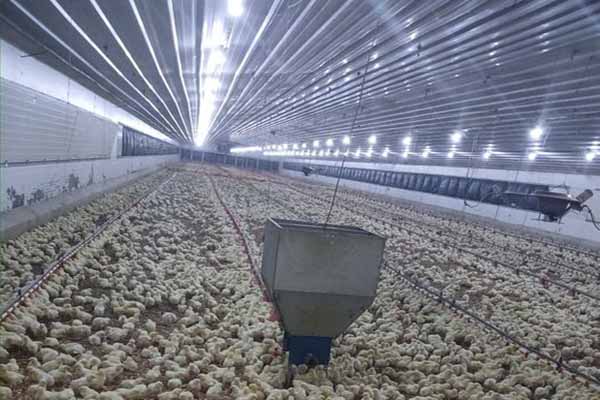Kenya Chicken Farm Manure Treatment Automation Solution: Revolutionizing Waste Management
Time : 2025-04-28
Are you a chicken farm owner in Kenya looking for a smart way to handle manure treatment? You’re not alone! Many chicken farmers are searching for automation solutions that can not only improve efficiency but also ensure environmental sustainability. In this article, we’ll explore the benefits of an automated manure treatment solution for Kenya’s chicken farms and how it can revolutionize waste management.
The Challenge of Manure Management in Kenya
Chicken farming is a vital industry in Kenya, providing employment, food security, and income for many rural communities. However, the process of manure management presents several challenges. Traditional methods, such as open-pit lagoons or spreading manure on fields, can lead to environmental issues like water pollution, air quality deterioration, and soil degradation.
The Power of Automation
That’s where automation comes in. By implementing an automated manure treatment solution, chicken farmers can achieve the following benefits:
– Efficiency: Automating the manure treatment process saves time and labor, allowing farmers to focus on other essential tasks.
– Environmental Protection: An automated system reduces the risk of water and air pollution by treating manure more effectively.
– Cost Reduction: Long-term savings can be realized through reduced waste management costs and increased crop yields from the use of high-quality manure.
– Quality Assurance: The automation ensures consistent and high-quality manure treatment, which is essential for crop production.
Introduction to Kenya Chicken Farm Manure Treatment Automation Solution
The Kenya Chicken Farm Manure Treatment Automation Solution is a state-of-the-art system designed to meet the specific needs of Kenya’s chicken farming industry. The solution includes the following components:
1. Collection System: Manure is collected through an automated process that ensures a steady flow of waste to the treatment facility.
2. Storage System: A covered storage tank keeps the manure dry and odor-free until treatment.
3. Treatment Process: Advanced technology is used to break down and process the manure, removing harmful pathogens and nutrients.
4. Disposal System: The treated manure is either converted into a nutrient-rich compost or used as bio-fertilizer.
How the Solution Works
Here’s a step-by-step guide on how the Kenya Chicken Farm Manure Treatment Automation Solution works:
1. Collection: Chicken manure is collected from the farm and transported to the storage system using conveyors or other automated methods.
2. Storage: The collected manure is stored in a covered tank to prevent odors and attract flies.
3. Treatment: The manure is then pumped to the treatment unit, where it is subjected to various processes like composting, anaerobic digestion, or bio-augmentation.
4. Disposal: The treated manure is either used as a nutrient-rich compost or bio-fertilizer for crop production.
Benefits of the Solution
– Reduced Odor: The covered storage and treatment process minimize odor emissions, which can improve the working environment for farm employees.
– Pathogen Elimination: The advanced treatment process ensures that harmful pathogens are destroyed, reducing the risk of disease transmission to animals and humans.
– Nutrient Retention: The treated manure retains essential nutrients, making it a valuable resource for crop production.
– Energy Generation: Anaerobic digestion of manure can generate biogas, which can be used for electricity and heat production on the farm.
Implementing the Solution
Implementing the Kenya Chicken Farm Manure Treatment Automation Solution involves the following steps:
1. Site Assessment: Conduct a thorough assessment of the farm to determine the most suitable location for the treatment facility.
2. Design and Planning: Work with a reputable automation provider to design a system that meets the specific needs of your farm.
3. Construction: Build the facility, including collection, storage, and treatment systems.
4. Installation and Testing: Install the automated components and conduct rigorous testing to ensure everything functions correctly.
5. Training: Train farm employees on how to operate and maintain the automated system.
The Future of Chicken Farming in Kenya
The Kenya Chicken Farm Manure Treatment Automation Solution is just one example of how technology can transform the poultry industry. By adopting innovative solutions like this, Kenya’s chicken farmers can achieve sustainable growth, create jobs, and contribute to the country’s economy.
Conclusion
In conclusion, the Kenya Chicken Farm Manure Treatment Automation Solution is a game-changer for waste management in the poultry industry. By improving efficiency, protecting the environment, and reducing costs, this solution offers a win-win scenario for both farmers and the planet. Embrace automation, and take your chicken farm to the next level!












